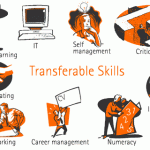
by cjxpadmin | Aug 27, 2012 | September 2012 Magazine
By Sheena Williams
Facebook, LinkedIn, Twitter, bloggers are all social media sites. Let me reiterate, they are social media sites. If you break those three words down, it means a site that uses media for you to be social. You can share  pictures, thoughts, songs, and videos to let others know what you’re doing with and in your life. It can let you keep up with literally hundreds of people with a click of a button. If you have family in Aruba, you just have to log on to see if that hurricane missed them. Have a daughter in the army? Well, your Facebook can bring you that much closer to seeing her.
pictures, thoughts, songs, and videos to let others know what you’re doing with and in your life. It can let you keep up with literally hundreds of people with a click of a button. If you have family in Aruba, you just have to log on to see if that hurricane missed them. Have a daughter in the army? Well, your Facebook can bring you that much closer to seeing her.
With all of the convenience of social media, it isn’t any wonder that many companies have now jumped on the bandwagon! Not only do they do this to advertise their product or service, but to conduct hiring practices. Think about all of the information that is on your resume can now be on LinkedIn. Employers can screen you, get your email address or telephone number, and hire you within a matter of minutes!
Unfortunately, however, with the good, comes the bad. You’re a conservative? Guess what? Your future boss  may be a liberal. Don’t like chicken soup? Well, the office administrator in charge of hiring may love it and thinks that anyone who doesn’t like it is un-American! With these kinds of pitfalls, someone could easily fall through, so, it’s easy to just say “Forget social media altogether.” However, more and more jobs are requiring a Facebook account or some such application. People are losing out on jobs because the employers cannot connect with them. You didn’t hear about that job on 4th Street? That’s because the company released the information on Twitter instead of spending the money for that pricey ad in the newspaper. In an effort to keep you from ignoring the job networking power house that is Social Media, we are going to give you some rules of thumb to follow when working with and posting on the World Wide Web!
may be a liberal. Don’t like chicken soup? Well, the office administrator in charge of hiring may love it and thinks that anyone who doesn’t like it is un-American! With these kinds of pitfalls, someone could easily fall through, so, it’s easy to just say “Forget social media altogether.” However, more and more jobs are requiring a Facebook account or some such application. People are losing out on jobs because the employers cannot connect with them. You didn’t hear about that job on 4th Street? That’s because the company released the information on Twitter instead of spending the money for that pricey ad in the newspaper. In an effort to keep you from ignoring the job networking power house that is Social Media, we are going to give you some rules of thumb to follow when working with and posting on the World Wide Web!
Are you ready?
Create yourself a separate account or page for work purposes. Yes, I know, you already have a  Facebook/LinkedIn/Twitter page. But do yourself a very large favor and create another one with your work e-mail address that you can keep completely separate from your personal social media page. This not only allows you to get your face and resume out there, but it also allows you to post freely on your personal page without having your boss seeing you do the Captain Morgan pose in front of their building. As funny as it may be, the picture has a time stamp on it and now you and your boss know that your picture was not taken during your lunch break.
Facebook/LinkedIn/Twitter page. But do yourself a very large favor and create another one with your work e-mail address that you can keep completely separate from your personal social media page. This not only allows you to get your face and resume out there, but it also allows you to post freely on your personal page without having your boss seeing you do the Captain Morgan pose in front of their building. As funny as it may be, the picture has a time stamp on it and now you and your boss know that your picture was not taken during your lunch break.
Learn the Terminology
Your boss asks why you don’t post anything on your Twitter. What? You have a Twitter and you were supposed to post? What is a post? Okay, so you’re creating the requested post. It tells you that you put in too  many characters. What are characters? It’s little things like these that you will need to look into that will make your time on any social media site easier before you even log on. A little research will let you know that a post is the content that you put on your social media page. You’ll find out that characters are the words, letters, numbers, and spaces that fill up a post. Being savvy about the things that you are about to undertake before you get on with it, will make your day a lot easier.
many characters. What are characters? It’s little things like these that you will need to look into that will make your time on any social media site easier before you even log on. A little research will let you know that a post is the content that you put on your social media page. You’ll find out that characters are the words, letters, numbers, and spaces that fill up a post. Being savvy about the things that you are about to undertake before you get on with it, will make your day a lot easier.
Securities Securities are what you allow others to see when they come to your page. You don’t mind letting John Doe check out your daily posts, but Jane Smith seems a bit suspicious. With many social media sites, you have the power to block, hide, allow, un allow, and show only who or what you wish to share. Maybe you took some before and after pictures of your weight loss journey, but you don’t want others to see your progress before your high school reunion. Set the picture folder to private and only your friends and family can see it. Going to the hospital to have a very personal surgery? Make sure that your securities reflect those who you want to see it. We always recommend that if it is something private like the previous example that you don’t put it up on your media site. Call those you need to know that information so that it will stay private.
Know What To Post
In life, you will find that not everyone will agree. In fact, in much of life, you will find that not everyone will agree. You have every right to post your opinion on any given topic that you see fit. However, by putting it on a social media site, you are giving everyone you have allowed access to your page to view and talk about it and come back with a rebuttal. If you are hoping to have a future employer hire you based on your information, then, you will have to keep the information you post to a minimum. Nothing negative, political, religious, racist or generally too opinionated should go onto your page. You want employers to base their decision to hire you based on your work, not how you feel about the Red Sox losing that big game.
come back with a rebuttal. If you are hoping to have a future employer hire you based on your information, then, you will have to keep the information you post to a minimum. Nothing negative, political, religious, racist or generally too opinionated should go onto your page. You want employers to base their decision to hire you based on your work, not how you feel about the Red Sox losing that big game.
Be Choosy About Who You Allow On Your Page
You love your Aunt Gertrude. You want nothing but good things and happy days for your Aunt Gertrude.  However, Auntie G has a bad habit of telling really embarrassing baby stories about you on your page. Your best friend, Buddy, has a nasty habit of criticizing you on your page. Your social media page is not the place for him or Aunt G to be doing any of that. Maybe it’s not even a case of you doing anything. Maybe Jessica likes to take provocative pictures of herself next to a car. It may be innocent, but if she tags you on the pictures, they will show up on your page, and it’s not something your employer needs to see. Don’t ignore any of these people, by any means. If you followed the above directions and have two separate pages, then, put them on the personal page and move on… except for that friend who criticizes you, having toxic people in your life isn’t good, no matter how funny he is, posting those pictures of those crazy kittens.
However, Auntie G has a bad habit of telling really embarrassing baby stories about you on your page. Your best friend, Buddy, has a nasty habit of criticizing you on your page. Your social media page is not the place for him or Aunt G to be doing any of that. Maybe it’s not even a case of you doing anything. Maybe Jessica likes to take provocative pictures of herself next to a car. It may be innocent, but if she tags you on the pictures, they will show up on your page, and it’s not something your employer needs to see. Don’t ignore any of these people, by any means. If you followed the above directions and have two separate pages, then, put them on the personal page and move on… except for that friend who criticizes you, having toxic people in your life isn’t good, no matter how funny he is, posting those pictures of those crazy kittens.
Do Not Post Your Personal Business
I cannot stress enough that it is potentially dangerous for you to put seriously personal things on your page. No one needs to know that your husband cheated on you. No one needs to know that you were chatting up some hottie on websites with questionable names. For the love of all that is heavenly, do not fight with your significant other on Facebook. As stated earlier, you are posting to a social media site. Yes, it is your business what you post there, but by posting it there, you open yourself up to criticism, complaints and judgment from all who can see your post, including your future boss. Your words can be used against you in a court of law, and there have been custody battles won on things posted on social media sites, don’t think I’m kidding. Think of social media as an interactive diary. You post your personal thoughts, but instead of the thoughts just being kept, the pages respond back to you.
what you post there, but by posting it there, you open yourself up to criticism, complaints and judgment from all who can see your post, including your future boss. Your words can be used against you in a court of law, and there have been custody battles won on things posted on social media sites, don’t think I’m kidding. Think of social media as an interactive diary. You post your personal thoughts, but instead of the thoughts just being kept, the pages respond back to you.
Don’t Be Afraid Of Social Media. It’s meant as entertainment and can be an excellent tool for finding work. It allows you to network and meet new people whom you wouldn’t have otherwise had the opportunity to meet. Just practice caution and some good common sense and you will be fine! △


by cjxpadmin | Aug 1, 2012 | August 2012 Magazine, This Issue's FEATURE
Am I Too Old To Change Careers?
You said you want to change your career at this stage of the game? Well, let me tell you that you are never too old.
Today, most of us are finding ourselves having to work much longer than we ever imagined. The days of an early retirement have been thrown out the window, so to  speak. However, working in our later years provides an opportunity to re-invent ourselves, to re-discover our hidden talents, and to pursue new ventures. This time in our lives gives us the chance to pursue the dreams that were left untapped, those things that we really wanted to do, but couldn’t because you all of a sudden find yourself with a family and obligations. Now, we are much wiser, have a lot of experience, and have gained skills that can be utilized by an employer or by yourself to start your own business. We should, after all, be challenging ourselves.
speak. However, working in our later years provides an opportunity to re-invent ourselves, to re-discover our hidden talents, and to pursue new ventures. This time in our lives gives us the chance to pursue the dreams that were left untapped, those things that we really wanted to do, but couldn’t because you all of a sudden find yourself with a family and obligations. Now, we are much wiser, have a lot of experience, and have gained skills that can be utilized by an employer or by yourself to start your own business. We should, after all, be challenging ourselves.
According to the Kingston Business School, older entrepreneurs are more likely to be successful than their younger counterparts. Why? Because the older we get, we become more confident about our own self-worth and are more aware of our strengths and weaknesses. This is a major advantage over a young person fresh out of college who is pursuing their first career. Working for yourself allows you to become dependent on yourself versus solely relying on others to give you a job.
Even if you aren’t interested in starting your own business, use this time in your life to re-assess your career and identify the areas that you truly enjoyed. Evaluate your life and job experiences and find the direction you want your career to take.
 The Colonel Sanders Story has been told so many times. It’s a well known story. Colonel Sanders was 65 years old when he began franchising his infamous chicken. Prior to that, the Colonel was a gas station owner where he fried chicken for weary travelers. This story is often repeated to show that it’s never too late and one is never too old to come up with career changing ideas. However, things were different in the 1930’s. When Colonel Sanders starting serving fried chicken at a Kentucky gas station 80 years ago, he probably didn’t have as many health department hurdles to overcome as that same gas station would today. How do you know what you want to do?
The Colonel Sanders Story has been told so many times. It’s a well known story. Colonel Sanders was 65 years old when he began franchising his infamous chicken. Prior to that, the Colonel was a gas station owner where he fried chicken for weary travelers. This story is often repeated to show that it’s never too late and one is never too old to come up with career changing ideas. However, things were different in the 1930’s. When Colonel Sanders starting serving fried chicken at a Kentucky gas station 80 years ago, he probably didn’t have as many health department hurdles to overcome as that same gas station would today. How do you know what you want to do?
CareerPath.com offers online resources that determines the same answers for free. If someone wants to change careers but is having trouble deciding on a new career path, these online resources can really help. Also, the website will even suggest actual jobs worth applying for.
Always remember that there are ways to transfer the skills you have gained so far into your next career. This is your opportunity to establish your real passions, interests, strengths and goals into your next career. However, do not forget what you have achieved or accomplished so far. None of it is irrelevant. You are simply building and growing from what you have done, even if you are taking a slightly different direction now. There is a connection there; — you just need to find it.
strengths and goals into your next career. However, do not forget what you have achieved or accomplished so far. None of it is irrelevant. You are simply building and growing from what you have done, even if you are taking a slightly different direction now. There is a connection there; — you just need to find it.
No one ever stated that we were only allowed one career path. It’s never too late to make a change. Start now. Don’t focus on your age but rather on the skills and experience you are able to offer to others. Empower yourself with this knowledge and pursue your new career path.
Choose a new you! △
“When you’re finished changing, you’re finished.”
~Benjamin Franklin

by cjxpadmin | Aug 1, 2012 | August 2012 Magazine
PREPARING FOR THE INTERVIEW
It’s a known fact that employers hire people they like, people who they can relate to or who they seem are like them somehow. Because of this, first and foremost, be likable and create a good first impression on your interview. P E O P L E get hired — experience alone does not!
The following list can help you prepare for your interview. Pay close attention and give your best interview.
 Place and time of interview: make sure you know it! Try to be there early, about 10-15 minutes early. Next, know your interviewer’s full name (the correct pronunciation as well) and his or her title.
Place and time of interview: make sure you know it! Try to be there early, about 10-15 minutes early. Next, know your interviewer’s full name (the correct pronunciation as well) and his or her title.
 Research the company. Learn everything you can about the company you are trying to get into. Learn its principal line of business, locations and yes, even annual sales revenue.
Research the company. Learn everything you can about the company you are trying to get into. Learn its principal line of business, locations and yes, even annual sales revenue.
 Envision why the hiring manager or the human resource person is interested in your qualifications.
Envision why the hiring manager or the human resource person is interested in your qualifications.
 Plan on how this opportunity could impact your immediate situation as well as your long-term career development. What can it do for your family?
Plan on how this opportunity could impact your immediate situation as well as your long-term career development. What can it do for your family?
 Always remember that an interview is a “two-way street.” Know what questions to ask. Insightful questions help both you and the interviewer to see if your relationship will be mutually rewarding.
Always remember that an interview is a “two-way street.” Know what questions to ask. Insightful questions help both you and the interviewer to see if your relationship will be mutually rewarding.
 Realize that the better you understand the opportunity at hand, the more you will be able to communicate your interest in the position. It will also help you ask better questions with regard to the job.
Realize that the better you understand the opportunity at hand, the more you will be able to communicate your interest in the position. It will also help you ask better questions with regard to the job.
 Enthusiastic smile and firm handshake are two things with which to greet your interviewer. Always wear proper attire and always, always put your best foot forward!
Enthusiastic smile and firm handshake are two things with which to greet your interviewer. Always wear proper attire and always, always put your best foot forward!
CHART OF DO’S AND DON’TS
| SOME DO’S |
SOME DON’TS |
| 1. DO plan to arrive on time or even a few minutes early. |
- DON’T arrive late for a job interview. Late arrivals are never excusable.
|
| 2. DO fill out your application neatly and completely. |
2. DON’T leave any blank spaces and DON’T rely on your resume to do the selling for you. |
| 3. DO greet the interviewer by his/her name using the correct pronunciation of their name. |
3. DON’T mispronounce his/her name. If you are unsure of it, ask the employer to repeat it. |
| 4. DO give the appearance of energy as you walk into the interviewing area. |
4. DON’T stroll into the room lazily. Smile! Firm Handshake! Be genuinely glad to be there. |
| 5. DO wait until you are offered a chair before sitting. |
5. DON’T just sit down before the interviewer. Sit up straight, be alert and look interested. |
| 6. DO be a good listener as well as a good communicator. |
6. DON’T appear bored and disinterested. Pay attention when spoken to and ask questions. |
| 7. DO look a prospective employer in the eye at all times. |
7. DON’T look away during a conversation. Maintaining eye contact shows confidence. |
| 8. DO follow the interviewer’s leads. |
8. DON’T go off on your own tangent. |
| 9. DO make sure that your good points come across to the interviewer in a factual, sincere manner. |
9. DON’T come across as egotistical, but do stress your experience, skills, abilities and achievements. |
| 10. DO always conduct yourself as if you are determined to get the job you are discussing. |
10. DON’T underestimate yourself. Never close the door on opportunity. |
| 11. DO show enthusiasm. |
11. DON’T appear blasé, nonchalant or bored. |
| 12. DO bring along at least 2-3 copies of your resume. |
12. DON’T forget to bring your resume in a neat and presentable manner. |
| 13. DO politely refuse an offer of a cigarette. |
13. DON’T smoke, even if the interviewer does and by no means, DO NOT chew gum! |
| 14. DO explain, whenever possible, any questions asked of you. |
14. DON’T respond with a simple yes or no. Give a good answer without going overboard. |
| 15. DO tell the truth. |
15. DON’T lie. Be truthful and frank. |
| 16. DO be considerate of past or present employers. |
16. DON’T make derogatory remarks of past employers. Not a good idea! |
| 17. DO answer questions politely and completely. |
17. DON’T over-answer. Stay away from politics or controversial issues. |
| 18. DO keep questions about salary and vacations to yourself. |
18. DON’T inquire about salary, vacation, bonuses, etc. on the initial interview. |
This next chart is just a brief reminder of Dressing For Success!
| Women |
Men |
| Conservative dress or suit |
If wearing suit, choose navy, gray or charcoal. |
| Avoid open-toe or sling back shoes |
Black leather shoes, polished please! |
| Conservative jewelry and perfume |
Minimal jewelry and minimal cologne |
| Hair neatly combed and not hanging in face |
Conservative haircut |
Now, it is time to check yourself and give yourself the once over right before your interview.
INTERVIEWING CHECKLIST
| Question |
✔ |
| 1. How is my physical appearance? |
✔ |
| 2. How self-assured and confident do I seem? |
✔ |
| 3. Can I communicate effectively during my interview? |
✔ |
| 4. Can I represent a return on my employer’s total investment in my pay and benefits if I am hired? |
✔ |
| 5. What are some specific examples of my achievements at work? |
✔ |
| 6. How much knowledge of the industry do I have? |
✔ |
| 7. How much do I know about my potential employer’s company? |
✔ |
| 8. Can I demonstrate with concrete examples my maturity and readiness to take on this responsibility? |
✔ |
| 9. Do I have the desire and enthusiasm to learn and grow with this company? |
✔ |
| 10. Am I exhibiting a positive attitude toward management and co-workers? |
✔ |
| 11. Am I demonstrating enough commitment and involvement in doing more than the job requires? |
✔ |
| 12. Do I understand the technical language and practices of the industry? |
✔ |
I hope these tips help you in the preparation of your interview.
Check next month and we will discuss the actual interview process itself and things to remember. Also watch for tips on the particular closing of the interview. △

by cjxpadmin | Aug 1, 2012 | August 2012 Magazine, Job Readiness
Culture at Work
Culture is at work every day and while most people think of culture as a way to distinguish their membership to an ethnic group, they seldom think of it as having an impact at their job or their interviewing process. When you apply to a job, you are automatically giving the impression that you think you would be a good fit within the company. Most  people only look at the salary and benefits being offered and never stop to think how well they would conform to the potential organization. Questions that you should ask yourself when applying for a job is, “How does the organization treat their employees or how are the employees motivated?” Organizational culture is a system of shared meaning held by members that make it unique from other organizations. In order for you to be successful at a job interview, you need to do your research and find out what kind of culture the company enforces so that you can answer interview questions in a certain way, the correct way. Job satisfaction is directly linked to how well you fit in at your work.
people only look at the salary and benefits being offered and never stop to think how well they would conform to the potential organization. Questions that you should ask yourself when applying for a job is, “How does the organization treat their employees or how are the employees motivated?” Organizational culture is a system of shared meaning held by members that make it unique from other organizations. In order for you to be successful at a job interview, you need to do your research and find out what kind of culture the company enforces so that you can answer interview questions in a certain way, the correct way. Job satisfaction is directly linked to how well you fit in at your work.
Seven characteristics that define culture at an organization are:
* innovation and risk taking
* attention to detail
* outcome orientation
* team orientation,
* aggressiveness, and
* stability.
Innovation and Risk Taking is the degree to which employees are encouraged to be innovative and to take risks. If you like to take risks at your job or you are very innovative, then, you must find out if the job you are applying to encourages their employees to function in that particular manner.
Attention to Detail is the degree to which employees are expected to exhibit precision, analysis, and to details. If you are a person who likes doing intense research or you love to analyze the logistics and details, then, an organization that motivates their employees to pay attention to detail would be a good fit for you.
Outcome Orientation is the degree to which management focuses on results or outcomes rather than on the processes used to achieve those outcomes. People who pay attention to the big picture or the end result of a project would do well in a company that has strong outcome orientation. People orientation is the degree to which management focuses on your ability to get along with others in the company and with the public. Organizations like Disney and Public Relation companies are known to value this particular characteristic.
 Team Orientation is the degree to which work activities are organized around teams, rather than individuals. This
Team Orientation is the degree to which work activities are organized around teams, rather than individuals. This
characteristic is where most people fall short because a lot of people are hesitant about working in groups.
Aggressiveness is the degree in which people are motivated to be aggressive and competitive, rather than easy going. People who are not competitive would probably have low job satisfaction versus people who thrive on competition.
 Stability is the degree to which organizational activities emphasize maintaining the status quo and contrast to growth. Companies that are high in stability are less open to change and different innovative ideas so beware if you are the type of person who likes to mix things up a little bit.
Stability is the degree to which organizational activities emphasize maintaining the status quo and contrast to growth. Companies that are high in stability are less open to change and different innovative ideas so beware if you are the type of person who likes to mix things up a little bit.
Applying to different companies should not be a random process because your happiness and satisfaction depend on how well you pick the companies you want to apply to. Some companies are strong in more than one area listed above and some are only strong in one of the characteristics listed so be aware. Your job is to decide what you value and would like to deal with on a daily basis.
 If you like companies that value risk taking and innovation or stability or perhaps you prefer team orientation, it is up to you to determine how you would like to function at your work and to find a company that allows and encourages you to do so. Read daily news about the companies you are applying to because that could give you some insight as to how they appear to the public eye.
If you like companies that value risk taking and innovation or stability or perhaps you prefer team orientation, it is up to you to determine how you would like to function at your work and to find a company that allows and encourages you to do so. Read daily news about the companies you are applying to because that could give you some insight as to how they appear to the public eye.
Another way to find out about the company is to use networking. Never underestimate networking because talking to people who work for potential companies can give you insight that is not shown to the general public. Some companies that have strong organizational cultures are Google, Hewlett Packard, and Dell. The bigger the company, the easier it will be to research what kind of company they are. Remember do your research, know what you want, and know your potential company and employer. △


by cjxpadmin | Aug 1, 2012 | August 2012 Magazine, This Issue's FEATURE
Creating Your Future
In creating your future, you need to learn how to choose to be the YOU you want to be!
We are not our actions, because we can change our actions and still be ourselves. For the same reason, we are not our thoughts, our opinions, our beliefs or our feelings. We can change all of those and still be ourselves. We are human beings. We have the power to create ourselves.
As we begin to explore the skill of becoming ourselves, it is very useful to see what being skillful is about. It is about having choices and flexibility. We can adapt, we can change and we can be bigger than we ever thought possible. This is personal skill, the skill to create ourselves, to be the people we want to be, rather than the people we were.
choices and flexibility. We can adapt, we can change and we can be bigger than we ever thought possible. This is personal skill, the skill to create ourselves, to be the people we want to be, rather than the people we were.
So far, we have seen that our lives have been shaped by the past. We see that it is possible to become aware of ourselves as we act in the present. Now we will see how it is possible to create our own future. For most people, the future is a blank. We expect it to be more of the same or expect it to just happen.
It sure is hard to see into the future. There are so many possibilities and paths to follow. Who knows what’s going to happen to us? Are we as helpless as a little rowboat being tossed about in the ocean? Or are we more like the captains of our own ships, steering ourselves from one major point in life to the next?
 Where are you steering yourself?
Where are you steering yourself?
One thing for sure, if you are reading this article, you care about your future. You care or you have a commitment to make your future better than what you have known in the past. You may not know exactly what you want, but you know you want the future to be better than the past. You will now have a chance to discover the skill you have for creating your future.
Becoming skilled means learning to change the things you can change, accepting the things you cannot change and having the wisdom to know the difference.
| Challenges Life Offer |
|
| Meeting Your Basic Survival Needs |
Food, Clothes and Shelter |
| Meeting Your Children’s Needs |
Love, Attention, Guidance |
| Finding: |
Jobs, Relationships, Money, Time |
| Staying Healthy |
Having a Body That Serves Your Purposes |
| Caring For Others |
Friends and Family |
| Conquering Your Fears |
|
| Things You Can Influence But Have No Control Over |
Things Over Which You Have Some Control |
| The other people in your life |
What you think, believe and feel |
| The circumstances that you are born into |
What you do or don’t do |
| The passing of time |
What attitudes you adopt |
| Mistakes |
What you want |
|
What you are trained to meet challenges in life |
You may not choose all the events that occur over the course of a lifetime, but you do choose how to experience those events.
Skills With Which to Build Your Future
 Success – There is no better foundation on which to build. Draw confidence from your experiences of success.
Success – There is no better foundation on which to build. Draw confidence from your experiences of success.
 Self-Communication – Speak positively and lovingly to yourself. Keep a positive image and faith in yourself in your heart.
Self-Communication – Speak positively and lovingly to yourself. Keep a positive image and faith in yourself in your heart.
 Bonding – Create partners, allow yourself to become close to the people who mean the most to you.
Bonding – Create partners, allow yourself to become close to the people who mean the most to you.
 Values – Become clear about what matters most to you. Trust in your own values.
Values – Become clear about what matters most to you. Trust in your own values.
 Self-Responsibility – You can be a leader to yourself. You need not depend on anyone else for your survival or success.
Self-Responsibility – You can be a leader to yourself. You need not depend on anyone else for your survival or success.

Meaning – Judgments and evaluations can either hurt you or help you in life. It is wise to know that you give the meaning to what happens for you.
Risk – The risks involved in meeting challenges head on include the possibility of messing up, looking foolish, or suffering a set-back. The rewards for taking positive risks are excitement, accomplishment and fulfillment.
Models – There is a power in learning from people who you respect and admire. We all learn from each other. Choose your models wisely and you will learn well.


 pictures, thoughts, songs, and videos to let others know what you’re doing with and in your life. It can let you keep up with literally hundreds of people with a click of a button. If you have family in Aruba, you just have to log on to see if that hurricane missed them. Have a daughter in the army? Well, your Facebook can bring you that much closer to seeing her.
pictures, thoughts, songs, and videos to let others know what you’re doing with and in your life. It can let you keep up with literally hundreds of people with a click of a button. If you have family in Aruba, you just have to log on to see if that hurricane missed them. Have a daughter in the army? Well, your Facebook can bring you that much closer to seeing her. may be a liberal. Don’t like chicken soup? Well, the office administrator in charge of hiring may love it and thinks that anyone who doesn’t like it is un-American! With these kinds of pitfalls, someone could easily fall through, so, it’s easy to just say “Forget social media altogether.” However, more and more jobs are requiring a Facebook account or some such application. People are losing out on jobs because the employers cannot connect with them. You didn’t hear about that job on 4th Street? That’s because the company released the information on Twitter instead of spending the money for that pricey ad in the newspaper. In an effort to keep you from ignoring the job networking power house that is Social Media, we are going to give you some rules of thumb to follow when working with and posting on the World Wide Web!
may be a liberal. Don’t like chicken soup? Well, the office administrator in charge of hiring may love it and thinks that anyone who doesn’t like it is un-American! With these kinds of pitfalls, someone could easily fall through, so, it’s easy to just say “Forget social media altogether.” However, more and more jobs are requiring a Facebook account or some such application. People are losing out on jobs because the employers cannot connect with them. You didn’t hear about that job on 4th Street? That’s because the company released the information on Twitter instead of spending the money for that pricey ad in the newspaper. In an effort to keep you from ignoring the job networking power house that is Social Media, we are going to give you some rules of thumb to follow when working with and posting on the World Wide Web!![]() Facebook/LinkedIn/Twitter page. But do yourself a very large favor and create another one with your work e-mail address that you can keep completely separate from your personal social media page. This not only allows you to get your face and resume out there, but it also allows you to post freely on your personal page without having your boss seeing you do the Captain Morgan pose in front of their building. As funny as it may be, the picture has a time stamp on it and now you and your boss know that your picture was not taken during your lunch break.
Facebook/LinkedIn/Twitter page. But do yourself a very large favor and create another one with your work e-mail address that you can keep completely separate from your personal social media page. This not only allows you to get your face and resume out there, but it also allows you to post freely on your personal page without having your boss seeing you do the Captain Morgan pose in front of their building. As funny as it may be, the picture has a time stamp on it and now you and your boss know that your picture was not taken during your lunch break. many characters. What are characters? It’s little things like these that you will need to look into that will make your time on any social media site easier before you even log on. A little research will let you know that a post is the content that you put on your social media page. You’ll find out that characters are the words, letters, numbers, and spaces that fill up a post. Being savvy about the things that you are about to undertake before you get on with it, will make your day a lot easier.
many characters. What are characters? It’s little things like these that you will need to look into that will make your time on any social media site easier before you even log on. A little research will let you know that a post is the content that you put on your social media page. You’ll find out that characters are the words, letters, numbers, and spaces that fill up a post. Being savvy about the things that you are about to undertake before you get on with it, will make your day a lot easier. come back with a rebuttal. If you are hoping to have a future employer hire you based on your information, then, you will have to keep the information you post to a minimum. Nothing negative, political, religious, racist or generally too opinionated should go onto your page. You want employers to base their decision to hire you based on your work, not how you feel about the Red Sox losing that big game.
come back with a rebuttal. If you are hoping to have a future employer hire you based on your information, then, you will have to keep the information you post to a minimum. Nothing negative, political, religious, racist or generally too opinionated should go onto your page. You want employers to base their decision to hire you based on your work, not how you feel about the Red Sox losing that big game. However, Auntie G has a bad habit of telling really embarrassing baby stories about you on your page. Your best friend, Buddy, has a nasty habit of criticizing you on your page. Your social media page is not the place for him or Aunt G to be doing any of that. Maybe it’s not even a case of you doing anything. Maybe Jessica likes to take provocative pictures of herself next to a car. It may be innocent, but if she tags you on the pictures, they will show up on your page, and it’s not something your employer needs to see. Don’t ignore any of these people, by any means. If you followed the above directions and have two separate pages, then, put them on the personal page and move on… except for that friend who criticizes you, having toxic people in your life isn’t good, no matter how funny he is, posting those pictures of those crazy kittens.
However, Auntie G has a bad habit of telling really embarrassing baby stories about you on your page. Your best friend, Buddy, has a nasty habit of criticizing you on your page. Your social media page is not the place for him or Aunt G to be doing any of that. Maybe it’s not even a case of you doing anything. Maybe Jessica likes to take provocative pictures of herself next to a car. It may be innocent, but if she tags you on the pictures, they will show up on your page, and it’s not something your employer needs to see. Don’t ignore any of these people, by any means. If you followed the above directions and have two separate pages, then, put them on the personal page and move on… except for that friend who criticizes you, having toxic people in your life isn’t good, no matter how funny he is, posting those pictures of those crazy kittens. what you post there, but by posting it there, you open yourself up to criticism, complaints and judgment from all who can see your post, including your future boss. Your words can be used against you in a court of law, and there have been custody battles won on things posted on social media sites, don’t think I’m kidding. Think of social media as an interactive diary. You post your personal thoughts, but instead of the thoughts just being kept, the pages respond back to you.
what you post there, but by posting it there, you open yourself up to criticism, complaints and judgment from all who can see your post, including your future boss. Your words can be used against you in a court of law, and there have been custody battles won on things posted on social media sites, don’t think I’m kidding. Think of social media as an interactive diary. You post your personal thoughts, but instead of the thoughts just being kept, the pages respond back to you.
























